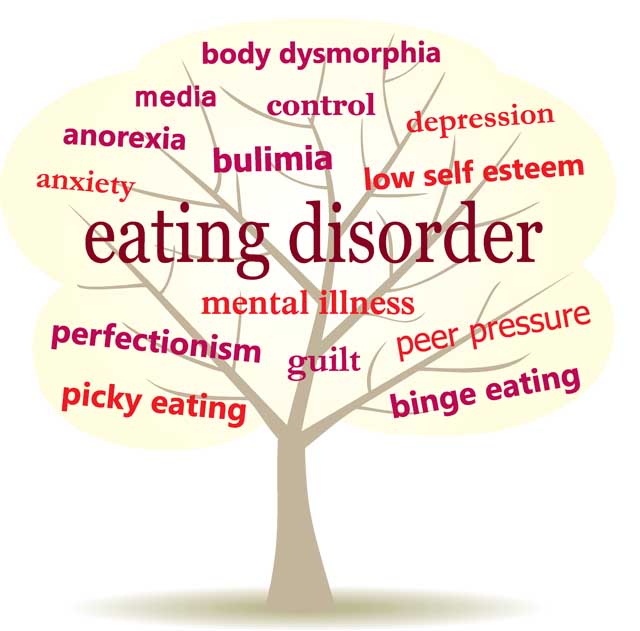
Eating disorders are often overlooked due to the misconception that they are not that serious. Unfortunately, this misconception can cause loved ones to delay intervention when they suspect an eating disorder. Discussing your suspicions can be challenging and often met with resistance. You may be afraid of offending the person, or believe they will get help when it gets bad enough. Unfortunately, they often do not seek help and can cause serious damage when treatment is delayed. Anorexia causes more deaths than any psychiatric disorder, which is all the more reason to address your concerns.
Signs of an eating disorder:
- extreme focus on shape and weight
- food restriction
- excessive exercise
- often chooses to stand instead of sit
- self-induced vomiting
- misuse of laxatives, diuretics, or pills claiming weight loss
- engages in body checking, which is repeated weighing, measuring, and mirror gazing
- body weight 15% below recommended weight or body mass index is 17.5 or lower
- periods stop and puberty can be delayed.
If you know someone with eating concerns, set up a private time to talk, be honest, discuss behaviors you have seen that are concerning, avoid making accusations, encourage the person to seek professional help, offer this flyer as a resource, and tell someone. Here is a screening tool that can help decide if professional help is needed. 
The National Eating Disorder Association of America (NEDA) is an excellent resource for information, supportive services, and resources regarding eating disorders. The NEDA helpline offers support and resources: 800-931-2237 Monday-Friday 9am-9pm ET.

